Blockchain
Cryptocurrency News Today Top Stories May 7, 2024

Find out the latest Cryptocurrency news today top stories development, including significant updates on the Ripple v. SEC litigation, Apple’s creative collaboration with Render Network, significant market trends, and regulatory measures.
Stay informed with today’s most impactful crypto news and analysis.
Cryptocurrency News Today: Ripple vs. SEC, Apple-Render Partnership, Bitcoin Trends, and other Top Stories
Cryptocurrency continues to make headlines, reflecting its increasing impact on finance and technology globally.
As the digital currency landscape evolves, it’s shaped by significant developments, including regulatory battles, groundbreaking partnerships, and shifts in market dynamics.
We will now bring you the latest pivotal events in the cryptocurrency world as of May 7, 2024, focusing on the ongoing Ripple vs. SEC lawsuit, public skepticism about crypto in the US, strategic partnerships like that of Apple and Render Network, and fundamental market movements.
Ripple vs. SEC Lawsuit Intensifies
The Ripple vs. SEC lawsuit has reached a crucial point as the US Securities and Exchange Commission (SEC) filed its final response in the ongoing legal battle with Ripple.
The SEC argued that Ripple’s claims do not eliminate the necessity for injunctions to prevent potential future violations.
This legal conflict, which began in December 2020 when the SEC filed a lawsuit against Ripple Labs for conducting unregistered securities sales via its XRP token, has now escalated with this latest filing.
Background of the Lawsuit
The lawsuit centers around the SEC’s assertion that Ripple raised over $1.3 billion through an unregistered securities offering. Ripple maintains that XRP is a digital currency, not a security, and therefore not subject to SEC regulations.
The outcome of this case is poised to set a precedent for how digital assets are classified and regulated in the US.
The initial ruling in favor of Ripple sparked optimism in the crypto community, but the SEC’s recent filing intensified regulatory scrutiny.
SEC’s Final Response and Ripple’s Defense
In its latest response, the SEC urged the court to issue injunctions despite Ripple’s assurances of compliance, emphasizing the importance of deterring future violations.
Ripple argues that the lawsuit is unfounded and that the XRP Ledger’s decentralization minimizes the potential for securities fraud.
The SEC’s response highlighted the need to protect investors and maintain the integrity of financial markets, pointing to Ripple’s past behavior as a basis for future risks.
Potential Impact on the Market
The lawsuit has affected XRP’s price and market sentiment, with the token experiencing significant volatility.
Despite falling over 14% year-to-date due to legal uncertainties, analysts believe XRP could rebound if Ripple secures a favorable outcome. Moreover, this lawsuit has implications beyond Ripple, potentially shaping future regulatory approaches to the broader cryptocurrency market.
Majority of Americans Skeptical About Crypto Despite Financial System Concerns
According to a recent survey by The Harris Group and the Digital Currency Group (DCG), 70% of voters in swing states think that considerable changes are needed to the current financial system since it is antiquated.
However, despite these concerns, most participants remain skeptical about cryptocurrencies as a viable solution due to issues like security, regulation, and market volatility.
Survey Findings and Public Perception
The survey highlighted the divide in public perception. While the majority agreed on the need for reform in traditional finance, only a minority viewed cryptocurrencies as the answer. Factors contributing to this skepticism include the perceived association of cryptocurrencies with speculative trading, regulatory uncertainty, and the prevalence of scams. Many respondents were particularly wary of decentralized finance (DeFi) and its potential risks.
Regulatory Concerns
Participants expressed concerns about regulatory oversight, highlighting the importance of government involvement in ensuring investor protection.
Recent events such as the Ripple vs. SEC lawsuit and the collapse of FTX have further fueled doubts about the industry’s integrity.
This survey underscores the challenges that cryptocurrency faces in gaining mainstream acceptance, even as it continues to grow in technological innovation and market impact.
Apple Partners with Render Network for Decentralized Computing
Apple’s keynote on May 7, 2024, spotlighted a groundbreaking partnership with the Render Network via OctaneX, a decentralized GPU platform.
This collaboration aims to harness Apple’s advanced hardware capabilities alongside the Render Network’s decentralized computing power, creating a seamless and powerful computing platform.
Partnership Overview
OctaneX is designed to leverage the decentralized GPU resources of the Render Network, offering a nearly unlimited pool of high-performance computing power.
By integrating Apple’s cutting-edge hardware, such as the M-series chips, with Render’s decentralized architecture, the partnership is set to redefine how decentralized computing resources can be accessed and utilized.
Impact on Decentralized Computing
This collaboration could significantly impact the decentralized computing landscape, offering content creators, developers, and researchers access to scalable GPU resources.
It also demonstrates how blockchain-based networks like Render can partner with tech giants to provide decentralized solutions for demanding computing tasks like rendering, machine learning, and data analysis.
Furthermore, this partnership aligns with Apple’s broader strategy of promoting innovation and integration within its ecosystem, signaling a growing interest in decentralized technologies and their potential applications.
Wintermute Provides Liquidity for Hong Kong Crypto ETFs
Wintermute, a leading market maker in the cryptocurrency industry, has committed to providing liquidity for Hong Kong-listed crypto exchange-traded funds (ETFs).
This calculated strategy comes at the same time as Asian venture capital firms open a $1 billion liquidity fund to help the expansion and uptake of cryptocurrency exchange-traded funds (ETFs) in the area.
Hong Kong’s Growing Crypto Market
The move reflects Hong Kong’s ambition to position itself as a global hub for cryptocurrency trading and innovation.
Recent regulatory changes have made the region increasingly attractive to institutional investors seeking exposure to digital assets through regulated financial products like ETFs.
Wintermute’s Role and Significance
Wintermute’s involvement as a liquidity provider ensures tighter spreads and higher trading volumes for the new ETFs, improving investor confidence and signaling the growing maturity of the cryptocurrency market in Asia.
The initiative aims to bridge the gap between traditional finance and digital assets, fostering institutional adoption of crypto products.
Bitcoin and Ethereum Market Trends
Bitcoin continues to capture investor attention as market sentiment shifts positively.

Bitcoin’s Bullish Momentum
The world’s largest cryptocurrency recently surpassed the $69,000 level before slightly retreating to $67,857.52, reflecting a 3.45% gain.
Fidelity Investments predicts a potential surge to $100,000 as institutional interest grows and more traditional finance firms offer Bitcoin exposure.
This bullish sentiment is supported by recent on-chain data, indicating that Bitcoin might be preparing for a significant upward movement.
Bitcoin adds 4.5% even as stocks reverse lower following hawkish Fed commentary.
Stephen Alpher, CoinDesk
Indicators and Trends
- Funding Rate and Basis Rate: Both indicators have cooled off, signaling a “calm before the storm,” according to Ciaran Lyons of Cointelegraph. This cooling-off often precedes a bullish breakout.
- Market Analysis: Bitcoin’s recent dip hasn’t dented the optimism of traders, as it remains on an upward trajectory.
Data suggests the crypto market remains in the early stages of a macro uptrend.”
Nancy Lubale, to Cointelegraph
Ethereum’s Underperformance
While Bitcoin is gearing up for a bull run, Ethereum (ETH) has been underperforming due to weaker capital rotation.
Despite rising 0.61% to $3,297.90, it has lagged behind Bitcoin’s gains, attributed to a lack of institutional momentum and uncertainty around the SEC’s approval of a spot Ethereum ETF.
Indicators and Trends
- On-Chain Data and Glassnode Analysis: Glassnode analysts report that Ethereum price lags due to “weaker capital rotation” but remains in a macro uptrend alongside Bitcoin.
- Market Analysis: Ethereum is still expected to benefit from the crypto market’s overall macro uptrend.
Broader Market Trends
- Altcoin Performance: Other prominent cryptocurrencies, such as Binance Coin (BNB), Cardano (ADA), and Toncoin (TON), have seen modest gains in recent days.
- Crypto Rebound Expectations: Investors are closely watching presales of promising projects like Raboo, which has attracted significant investment amid Bitcoin and Ethereum price recovery.
Australian Tax Office Seeks Crypto Data from 1.2 Million Users
The Australian Tax Office (ATO) has requested personal and transaction data from 1.2 million cryptocurrency users to identify those who still need to fulfill their tax obligations.
The agency acknowledged that some users might unknowingly fail to comply but emphasized the need to enforce regulations consistently. This move underscores the growing scrutiny of crypto transactions by tax authorities globally.
Complexity of Compliance
Crypto tax compliance remains challenging due to the intricacies of tracking transactions across multiple exchanges and platforms, making it crucial for users to stay informed on evolving guidelines.
The landscape of cryptocurrencies is still changing as a result of market trends, creative collaborations, and regulatory scrutiny.
The Ripple vs. SEC lawsuit highlights the industry’s regulatory challenges and the need for more precise guidelines.
Meanwhile, public skepticism about crypto remains high despite dissatisfaction with the current financial system, emphasizing the importance of security and compliance.
On the innovation front, Apple’s partnership with the Render Network exemplifies the potential for decentralized computing.
At the same time, Wintermute’s involvement in Hong Kong crypto ETFs showcases the growing institutional interest in digital assets in Asia.
Market trends indicate that Bitcoin remains bullish, with predictions pointing to a surge beyond $100,000, while Ethereum, despite its underperformance, is expected to benefit from a macro uptrend alongside other altcoins.
The Australian Tax Office’s move to enforce crypto compliance further underscores the importance of regulatory adherence.
Conclusion
Bitcoin and Ethereum continue to shape the cryptocurrency market’s outlook.
While Bitcoin shows bullish potential, Ethereum’s macro trends and growing institutional interest hint at a promising future despite recent underperformance.
It will be crucial for stakeholders and investors alike to keep up with new developments and stay aware of developing trends as the cryptocurrency business continues to drive changes in the markets, regulations, and technology.
FAQs
- What is the current status of the Ripple vs. SEC lawsuit?
- The SEC has filed its final response, calling for injunctions against Ripple despite its arguments.
- Why are Americans skeptical about crypto despite dissatisfaction with the financial system?
- Concerns about security, regulation, and market volatility contribute to skepticism.
- How does Apple’s partnership with the Render Network impact decentralized computing?
- This collaboration integrates Apple’s advanced hardware with decentralized GPU resources, potentially redefining decentralized computing.
- What does Wintermute’s involvement in Hong Kong crypto ETFs signify?
- It reflects growing interest and strategic importance in the Asian crypto market.
- What market trends are currently affecting Bitcoin and Ethereum?
- Bitcoin shows signs of a bullish movement, while Ethereum lags due to weaker capital rotation.
Blockchain
SUI Price Target Hits $10 Watchlist, SHIB Holding Surges, But BlockDAG Rewards Daily With Scarcity Incentives

Incentives are now leading the charge in crypto. Shiba Inu (SHIB) is gaining fresh attention thanks to rising holding metrics, hinting at a new wave of price momentum. SUI is forming a falling wedge on the charts that could open the door to a major rally if key resistance breaks. Both projects are reacting to sentiment and chart signals, but BlockDAG is taking a different route, by building reward mechanics straight into its presale.
Through its unique Buyer Battles feature, BlockDAG (BDAG) is locking in token scarcity and giving top daily buyers exclusive rewards. While other projects wait for charts to shift, BlockDAG is pushing action and creating value day after day.
BlockDAG Buyer Battles Give Whales a Competitive Edge With Daily Rewards
BlockDAG’s Buyer Battles is more than just a presale gimmick, it’s a built-in strategy to reward high rollers. Each day, a leaderboard resets, and the day’s biggest buyer receives all unclaimed BDAG from that day’s allocation. This turns each 24-hour period into a competitive showdown for extra tokens.
That’s why strategic buyers, especially larger ones, are leaning in. The more someone spends in a day, the better their chance of walking away with a massive bonus. It’s a setup that drives traffic and creates urgency, while shrinking token supply with every unclaimed batch.
Unlike static presale rounds, this model doesn’t water down future value. Instead, whales increase their own stacks while helping to boost scarcity across the board. It’s a win-win for anyone thinking tactically.
BlockDAG has already raised $326 million, selling over 23.4 billion coins. It’s currently in batch 29, priced at $0.0276, and early supporters from batch 1 have seen returns of 2,660%. The GLOBAL LAUNCH release adds more heat: users can grab BDAG at $0.0016 until August 11, a price not seen since the beginning.
So for anyone searching for crypto coins to buy, BlockDAG offers more than just a presale, it offers timing, rewards, and a system designed to reward smart moves.
SUI Price Target Points to Breakout As Falling Wedge Forms
The SUI price target is getting serious buzz as traders spot a falling wedge pattern, one often tied to bullish breakouts. After falling under $3 and hitting a low of $2.68, SUI bounced off a key support zone. Analysts say if it holds above support, SUI could push toward the $5.00 to $5.50 range.
There’s history to back this view. In March and April, SUI broke from a similar wedge and surged to $4.00, briefly touching $4.10. Right now, it’s testing both its EMA and MA zones. If it clears the top of the wedge, that could kick off a sharp climb.
And the upside doesn’t stop there. Long-term projections include a potential run to $8 or even $10, based on broader technical patterns. For now, the $2.80 to $3.00 level is the key range to watch. Hold that, and SUI could be one breakout away from reaching its next major high.
Shiba Inu (SHIB) Price Momentum Gains Strength With Rising Holding Activity
Data shows that Shiba Inu (SHIB) price momentum is picking up as more holders stay committed. The average holding time has jumped 106%, meaning people are choosing to hold SHIB longer instead of chasing quick exits. That’s a solid signal of growing faith in the project.
Although the current price floats around $0.0000115, the increased holding duration suggests accumulation is happening behind the scenes. When fewer coins move on-chain, supply tightens, and prices can follow.
In past cycles, extended holding has often set the stage for breakouts. If demand rises while supply keeps shrinking, SHIB could be lining up for a bigger move. Traders watching Shiba Inu (SHIB) price momentum should track if this trend continues and if on-chain data confirms the building pressure.
Why BlockDAG’s Incentive System Stands Out From the Crowd
SHIB and SUI are relying on market sentiment and price patterns. BlockDAG is rewriting the rules with a presale that doesn’t just collect funds, it drives action. Its Buyer Battles create real-time scarcity and push participation to the max.
This setup doesn’t wait for charts to shift. It creates movement by design. Every unsold token is removed and reallocated to the most committed buyer, building daily tension and supply pressure. It’s a system built for engagement, not speculation.
For anyone hunting crypto coins to buy that offer upside and utility, the message is clear: Don’t wait for the breakout, be part of what makes it happen.
Presale: https://purchase.blockdag.network
Website: https://blockdag.network
Telegram: https://t.me/blockDAGnetworkOfficial
Discord: https://discord.gg/Q7BxghMVyu
Blockchain
BlockDAG’s U.S. Push and $0.0016 Access Fuel Interest While LINK Gains and AVAX Drops

Price shifts often reflect broader themes shaping crypto markets. Chainlink has gained attention recently, rising as talks about AI regulations drive interest in real-world blockchain uses. Avalanche, meanwhile, has shown a sharp bounce from past lows, but still faces resistance that limits further progress.
In contrast, BlockDAG (BDAG) is being noted not only for price activity but for building a solid reputation. As it prepares to confirm a U.S.-based partnership, BlockDAG is focusing on long-term presence. It has already raised $325 million in presale and opened a rare pricing stage that offers extra potential for those entering early.
BlockDAG Targets U.S. Alliance for Stronger Market Role
BlockDAG is nearing the completion of a major deal in the United States. This upcoming step is likely to raise its appeal among firms that follow formal structures. Since the U.S. plays a leading role in crypto rules and public adoption, getting a respected partner in the region means more than just market access. It helps open up options for clearer regulation, large-scale platforms, and stronger public trust.
This move shows a change from early-stage interest to a more established presence. Rather than chasing early buzz, BlockDAG is moving toward solid use as a blockchain tool. Entering the U.S. market through a known partner builds confidence across exchanges, finance apps, and crypto-related services operating across the country.
At the same time, BlockDAG’s presale progress supports this shift. The project has raised over $325 million, sold 22.4 billion coins, and delivered a 2,660% gain since batch 1. In batch 29, BDAG is priced at $0.0016 until August 11, matching early presale prices.
This combination of strong growth and a U.S. market entry shows how BlockDAG is setting up for broader reach. It aims to grow as a tech platform while building trust in areas that can influence global crypto activity.
Chainlink (LINK) Price Moves Up as AI Policy Talk Grows
The recent Chainlink (LINK) price movement shows a clear rise, happening at the same time as new U.S. attention on artificial intelligence legislation. As political leaders support faster AI progress, Chainlink’s position as a data service for smart contracts becomes more important. The market seems to be noticing the long-term value of linking secure, real-time data to future systems.
At the same time, LINK is holding its upward trend. This is helped by more people seeing how it connects smart contracts with reliable data. The price shift is not only about trading. It shows a stronger view of Chainlink’s use in systems that need trusted automation, especially while AI rules and security stay in focus.
Avalanche (AVAX) Tries to Break Past Key Resistance
Avalanche AVAX has bounced back with a V-shaped recovery, going from a low of $18.09 to about $18.40. This bounce strengthened after passing $18.27, setting support between $18.33 and $18.35. Even with this move, AVAX is having trouble gaining more ground because of steady selling near the $18.85 to $18.90 range.
The recovery was followed by a short period of quiet trading, with three minutes of no volume, suggesting hesitation in the market. Recently, the price dropped around 1.4%, falling behind as sellers continued to push back. Now, Avalanche AVAX is at a point where it needs to break through current limits or risk losing momentum in its upward trend.
Final Say
As Chainlink sees gains from AI-related news and Avalanche tests its short-term rebound, the focus is starting to shift. BlockDAG is moving on a different path. Instead of reacting to market trends, it is creating a long-term plan.
A coming U.S. partnership may help increase its standing in one of the most important crypto regions. This adds more than just market visibility. It creates a chance to grow trust and build real links in global markets. With strong crypto presale results and a clear pricing structure, BlockDAG shows early signs of planning for long-term goals, including utility, trust, and wider use.
Presale: https://purchase.blockdag.network
Website: https://blockdag.network
Telegram: https://t.me/blockDAGnetworkOfficial
Discord: https://discord.gg/Q7BxghMVyu
Blockchain
BlockDAG Surges with $324M Raised While Pi Struggles: The Future of Layer 1 Explained

While Pi Network grabs attention with its June 28 announcement, BlockDAG is quietly making strides. Pi faces a $171 million token unlock in July, prompting whales to pivot toward more stable projects like BlockDAG. BlockDAG’s hybrid architecture of DAG and Proof-of-Work addresses scalability challenges in Layer 1 blockchains.
With a presale already raising $324 million and 23.3 billion BlockDAG (BDAG) coins sold, early backers have earned a 2,660% return. The presale price, currently at $0.0080, offers a significant opportunity for gains. BlockDAG’s ambitious roadmap signals strong future potential.
Pi’s AI Push Faces Major Challenges
Pi Network has recently seen a 12% surge due to rumours of potential GenAI integration, sparking speculation of a breakout, especially if confirmed on June 28. Its RSI has bounced back to neutral at 49.4, and the price has risen from $0.48 to $0.59, forming a double-bottom pattern. However, the looming release of 282 million tokens in July raises concerns about sell-offs. Unless June 28 brings transformative news, Pi’s momentum could stall.
Meanwhile, BlockDAG offers a clear path forward. The presale is still open at $0.0080 for a limited time, with a confirmed listing price of $0.05. It has attracted over 200,000 holders and is focusing on building infrastructure, miners, apps, testnets, and DeFi tools. This strategy aims to create long-term value, offering a high ROI for early investors.
BlockDAG: A Layer 1 Solution with Substance
Unlike Pi, which is focused on integrating generative AI, BlockDAG is already executing its six-phase mainnet plan, with a production-ready network expected in Q4 2025. This roadmap includes staking, airdrops, and community node launches, ensuring that users are well-integrated before the official exchange listing.
BlockDAG is also seeing strong engagement through its X1 Miner App, which has already attracted over 2 million users worldwide. Additionally, the sale of 18,000 ASIC mining units underscores its commitment to the PoW model. What sets BlockDAG apart is its hands-on ecosystem-building approach, which includes a 100 million airdrop to reward early participants and incentivise engagement. The airdrop campaign is designed to build a user base, with tasks across testnet deployments, presale participation, referrals, and more.
BlockDAG: Moving Ahead with Infrastructure
While Pi struggles with its tokenomics, BlockDAG continues to build on its solid foundation. The project is focused on infrastructure over hype. The presale is ongoing, and early investors can still buy at a limited price of $0.0080. The official listing price is confirmed at $0.05, presenting a high potential return.
BlockDAG has already attracted over 2,000,000 holders, and its multi-pronged approach includes miners, mobile apps, testnets, DeFi tools, and developer education. This methodical strategy mirrors what early-stage projects like Binance and Avalanche did to create long-term network value. The emphasis is on building infrastructure that provides real utility to users, not just speculative price movements.
Conclusion
While Pi’s June 28 announcement may lead to a short-term price spike, the looming $171 million token unlock in July casts doubt on its sustained momentum. In contrast, BlockDAG’s strategic approach to infrastructure development is already paying off. With its 100 million airdrop, a live testnet, millions of mobile miners, and a structured mainnet rollout, BlockDAG is positioning itself as a project that offers long-term value.
If Pi’s volatility continues, BlockDAG could emerge as the stronger, more reliable option for those looking for a crypto with real-world utility and strong growth prospects. While speculation surrounding Pi may continue, BlockDAG is already building a solid foundation for decentralised growth and mainstream adoption.
Website: https://blockdag.network
Presale: https://purchase.blockdag.network
Telegram: https://t.me/blockDAGnetworkOfficial
Discord: https://discord.gg/Q7BxghMVyu
-

 Crypto3 years ago
Crypto3 years agoCardalonia Aiming To Become The Biggest Metaverse Project On Cardano
-
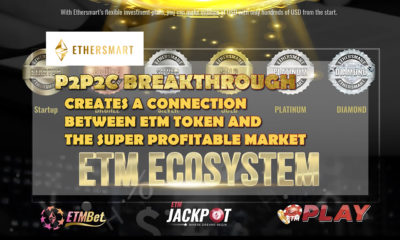
 Press Release5 years ago
Press Release5 years agoP2P2C BREAKTHROUGH CREATES A CONNECTION BETWEEN ETM TOKEN AND THE SUPER PROFITABLE MARKET
-
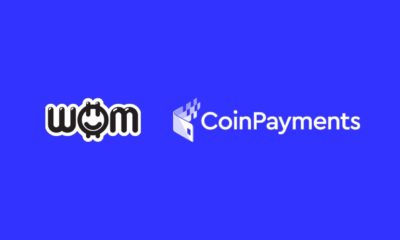
 Blockchain5 years ago
Blockchain5 years agoWOM Protocol partners with CoinPayments, the world’s largest cryptocurrency payments processor
-

 Press Release5 years ago
Press Release5 years agoETHERSMART DEVELOPER’S VISION MADE FINTECH COMPANY BECOME DUBAI’S TOP DIGITAL BANK
-
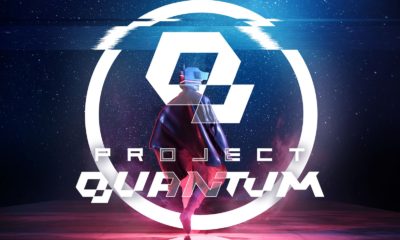
 Press Release4 years ago
Press Release4 years agoProject Quantum – Decentralised AAA Gaming
-

 Blockchain5 years ago
Blockchain5 years agoWOM Protocol Recommended by Premier Crypto Analyst as only full featured project for August
-
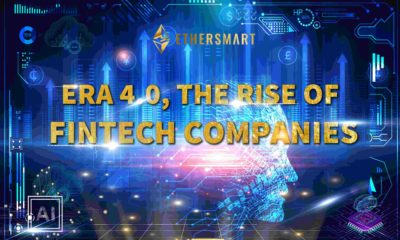
 Press Release5 years ago
Press Release5 years agoETHERSMART DEVELOPER’S VISION MADE FINTECH COMPANY BECOME DUBAI’S TOP DIGITAL BANK
-
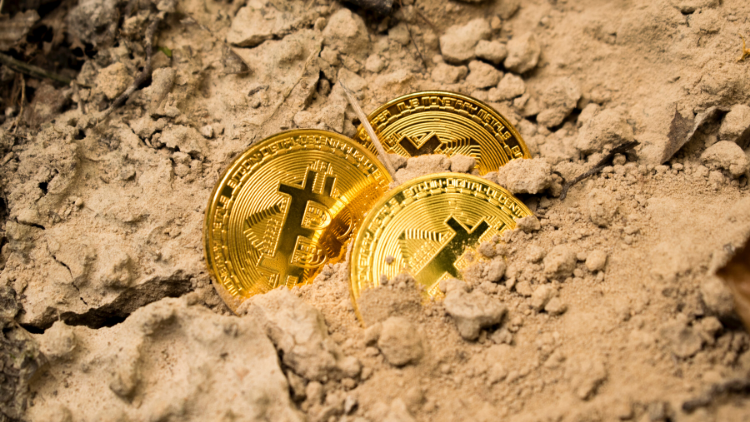
 Blockchain5 years ago
Blockchain5 years ago1.5 Times More Bitcoin is purchased by Grayscale Than Daily Mined Coins






